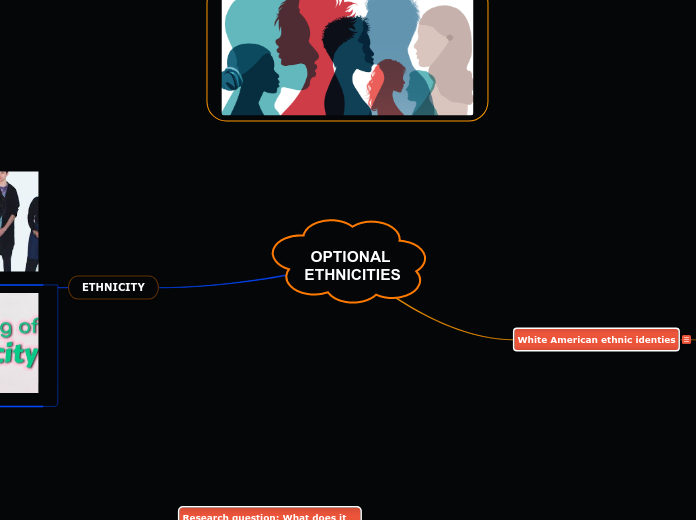a asia williams 3 éve
228
OPTIONAL ETHNICITIES

a asia williams 3 éve
228

Még több ilyen
"One important implication of these identities is that they tend to be very individualistic. There is a tendency to view valuing diversity in a pluralist environment as equating all groups. The symbolic ethnic tends to think that all groups are equal; everyone has a background that is their right to celebrate and pass on to their children. This leads to the conclusion that all identities are equal and all identities in some sense are interchangeable" ( Waters 1996:201).
"The issue of stereotypes about Black Americans and the assumption that all Blacks are alike and have the same stereotypical cultural traits has more power to hurt or offend a Black person than vice versa. The innocent questions about Black hair also bring up a number of asymmetries between the Black and White experience. Because Blacks tend to have more knowledge about Whites than vice versa"(Waters 1996:205).
"Who your ancestors are does affect your choice of spouse, where you live, what job you have, who your friends are, and what your chances are for success in American society, if those ancestors happen not to be from Europe. The reality is that White ethnics have a lot more choice and room for maneuver than they themselves think they do"(Waters 1996:200).
"White Americans of European ancestry can be described as having a great deal of choice in terms of their ethnic identities. The two major types of options White Americans can exercise are (1) the option of whether to claim any specific ancestry, or to just be "White" or American, [Lieberson (1985) called these people "unhyphenated Whites"] and (2) the choice of which of their European ancestries to choose to include in their description of their own identities" (Waters 1996 :199).
"(An example of symbolic ethnicity is individuals who identify as Irish, for example, on occasions such as Saint Patrick's Day, on family holidays, or for vacations. They do not usually belong to Irish American organizations, live in Irish neighborhoods, work in Irish jobs, or marry other Irish people. The symbolic meaning of being Irish American can be constructed by individuals from mass media images, family traditions, or other intermittent social activities. In other words, for later-generation White ethnics, ethnicity is not something that influences their lives unless they want it to"(Waters 1996:200).